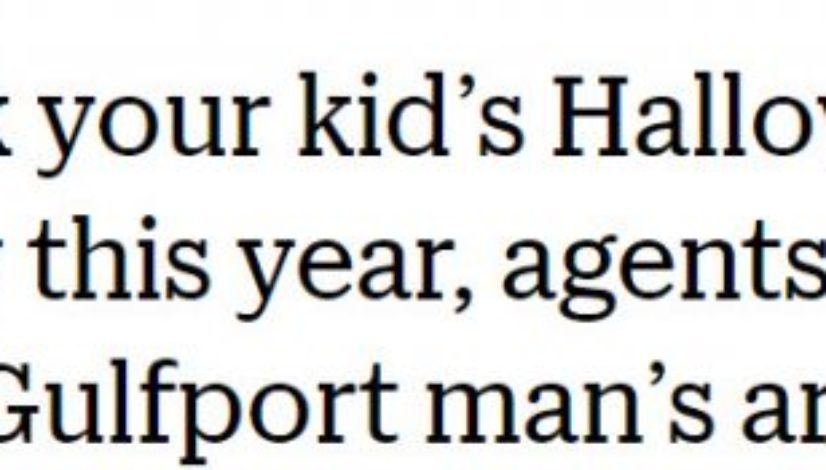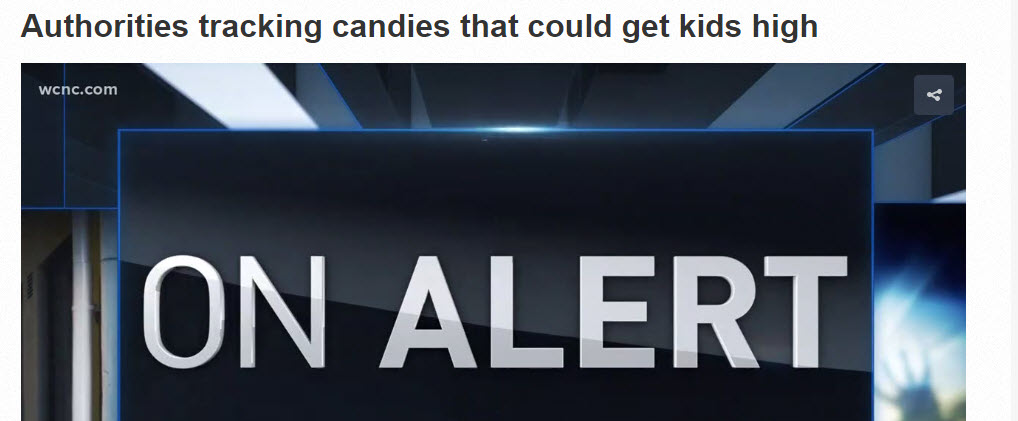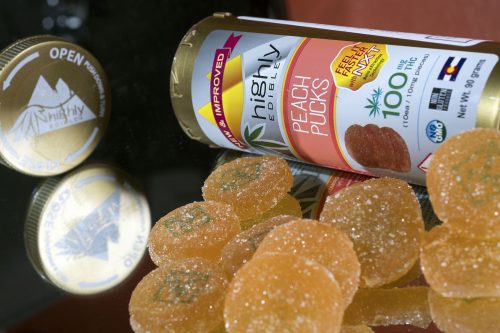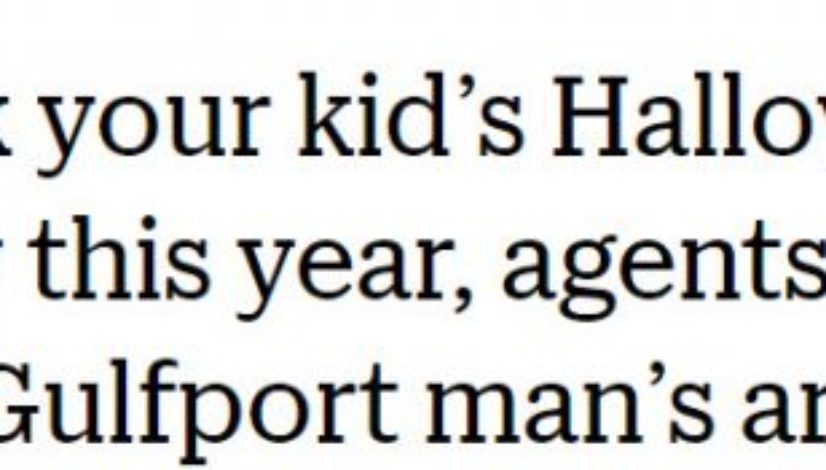“CBD candy” is this year’s Halloween bogeyman

Published: Oct 27, 2017, 2:34 pm • Updated: Oct 30, 2017, 7:58 am
By The Cannabist Staff
Every year around this time, The Cannabist chronicles how THC became the new razor blade in your kid’s trick-or-treat pail.
With Halloween 2017 right around the corner, it looks like there’s a new bogeyman, at least in some parts of the country: “CBD candy.”
Cannabidiol, or CBD, is the non-psychoactive cannabis compound touted for its medicinal promise. In addition to the 29 states, the District of Columbia, Guam and Puerto Rico that have legalized some forms of marijuana, 18 states allow use of CBD-rich products for medical purposes, according to the National Conference of State Legislatures.
CBD has recently become more widely available — it’s even in mainstream grocery chains — and it appears the cannabis compound is confounding state law enforcement agencies and news outlets.
The Halloween weed scare of 2017 appears to have originated in North Carolina, where medical cannabidiol was legalized in July 2015.

On Oct. 20, Charlotte NBC affiliate WCNC reported CBD candies have become “a nightmare for state drug enforcement agencies as Halloween draws near.”
After outlining that CBD is not psychoactive like THC, the report warns: “but it’s known to give users a relaxing feeling.”

The same evening, WRAL Raleigh reported that state law enforcement officers were sounding the alarm about “gummie candy and lollipops containing cannabidiol.”
Cumberland County Sheriff Ennis Wright said his school resource officers haven’t come across any of the CBD products on school campuses, but the color of the packaging concerns him.
“Being that Halloween is coming up, this package here basically favors the Halloween colors,” Wright said. “I want to inform these parents to ensure that they look at every piece of candy that these young people are bringing home.”
Jason Locklear, an agent with the state Division of Alcohol Law Enforcement, said shops in the Cumberland County area are sold out of lollipops with CBD. He’s also concerned about a vaporless inhaler that gives a person a hit of the compound.
The modern media marketplace then amplified the story to the largest news markets in the country. The WRAL piece was picked up this week by The New York Daily News and Houston Chronicle, which ran the story word-for-word but did dutifully observe in a subhead: “Cannabidiol will be legal in Texas medical marijuana dispensaries starting next year.”

Meanwhile, WCNC Charlotte’s “CBD candy” report was rebroadcast by Cleveland’s NBC affiliate, WKYC this week. Tampa, Fla., NBC affiliate WFLA also picked up the story, adding a Sunshine State-specific reporting:
The Poison Center at Tampa General Hospital is warning parents to be on the lookout for these candies.
Dr. Fred Aleguas is urging parents to double check all candy wrappers closely. He is also issuing a reminder to not let your kids eat any homemade goodies passed out during trick-or-treating.
WFLA’s story was then picked up by Albany, N.Y. ABC affiliate News 10, which didn’t add an Empire State angle.

Despite zero evidence of THC-laced treats being handed out to children since legalization took root in Colorado and Washington, Halloween 2017 has seen its share of marijuana candy sensationalism.
The New Jeresey Attorney General published a pamphlet Wednesday warning, “There is a significant presence of marijuana candy and other edible forms in New Jersey and nearby states.”
Parents: Check #Halloween candy for #marijuana infused candy. pic.twitter.com/i2RpF3Ovo9
— NJ Attorney General (@NewJerseyAG) October 24, 2017
The document cites the case of a 10-year-old New York boy who police said became ill after eating candy infused with cannabis found in the back seat of his family’s car, but that had nothing to do with Halloween, according to the Associated Press.
Nonetheless, the New Jersey document has been republished across social media and in local news reports in New York, Philadelphia, Miami and Austin.
Down in Mississippi, the Oct. 9 arrest of a Gulfport man with “760 units of edible candies laced with THC” had the state’s Bureau of Narcotics dirctor imploring residents to check all treats given to children on Halloween.

“The THC was disguised in popular candy that appears to be peach rings, gummy worms and strawberry gum drops. Each bag of candy had a label that said it had 100 mg of THC inside,” according to The Sun Herald of South Mississippi.
Related stories
- Halloween 2015: Is marijuana candy really a concern for trick-or-treaters?
- Best of 2014: Whoopi, Dr. Drew and 13 other pot op-eds that defined the year
- We’re more likely to catch Ebola than to receive pot-laced Halloween candy
- No reports of kids’ Halloween candy laced with marijuana
- Coast-to-coast police warnings about pot candy getting ridiculous
States that have legalized recreational use of marijuana have taken steps to ensure that edibles sold in dispensaries cannot be confused with candy. Colorado’s ban on marijuana edibles shaped like humans, animals, fruits or cartoons went into effect on Oct. 1. The state also requires a universal THC symbol stamped on each 10-milligram standard serving, the inclusion of potency and contamination testing information, and the barring of words such as “candy” or “candies.” The state is also requiring more prominently displayed potency information on the labels of cannabis products.
 DENVER, CO – A detail shot of the Colorado State-mandated THC warning diamond on gummies.(Vince Chandler, The Denver Post)
DENVER, CO – A detail shot of the Colorado State-mandated THC warning diamond on gummies.(Vince Chandler, The Denver Post)
Washington’s laws prohibit any marijuana product from being “designed to be especially appealing to children” and require labeling on all marijuana products to state that “this product contains marijuana.”
As far as Halloween hazards go, children have a greater chance of being fatally injured by a car on Oct. 31 than any other day of the year, including the Fourth of July and New Year’s Day. So be safe, have a Happy Halloween, and please remember to keep cannabis products out of the reach of children.
Topics: candy edibles, cbd, edibles, halloween, halloween candy, Special Report: CBD TBD




